Testimony: Mike Hubbard hired to open doors for others
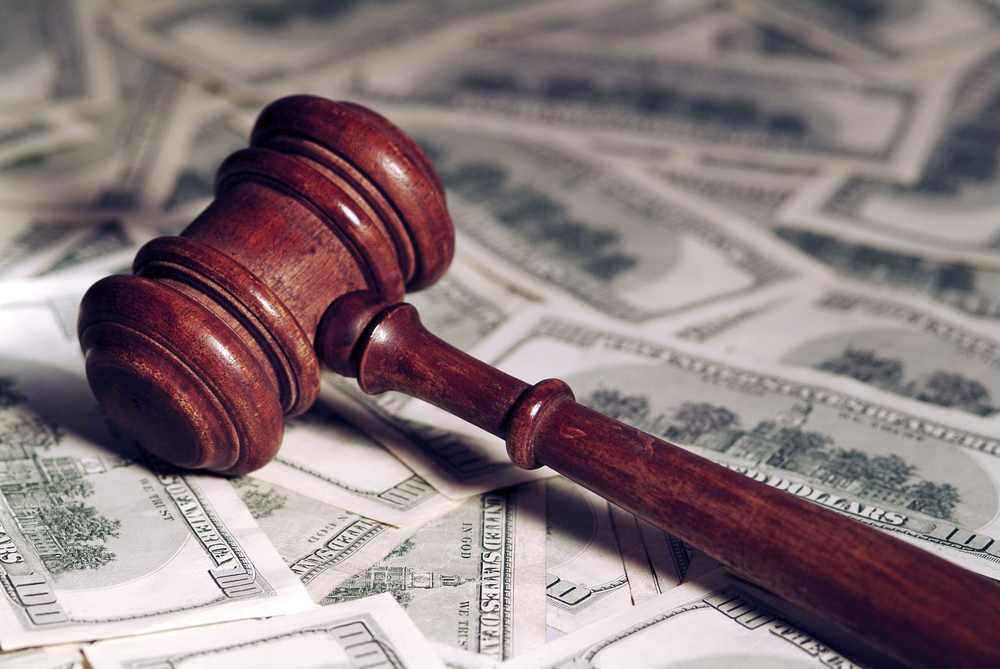
The president of an education curriculum company testified Tuesday that he hired Alabama House Speaker Mike Hubbard in a $7,500 a month consulting contract, to open doors with legislative leaders in other states as the company tried to sell digital courses to school systems. Edgenuity President Michael Humphrey said he believed Hubbard – with his legislative and sports background – could get him meetings with legislative leaders that Humphrey said it would take him a year to get on his own. “My idea was to use Mike to say, ‘Get me a meeting with this guy, let me go meet him,’” Humphrey said. Humphrey said Hubbard’s contract specified that he only worked on matters outside Alabama for the company. Humphrey said Hubbard’s work for the company included calling the then-speaker of the South Carolina House of Representatives and emailing Auburn University Athletics Director Jay Jacobs asking for contacts for the company as it tried to get cleared by the NCAA to sell its products for college athletes. Hubbard faces 23 felony ethics charges accusing him of using his political positions to make money and solicit work, investments and clients from people with business before the Alabama Legislature. Prosecutors say Hubbard improperly used the “mantle of his office” to benefit his businesses and clients. Hubbard has maintained that the transactions were legal and permitted under the exceptions that the state ethics law provides for normal business dealings and longstanding friendships. During the questioning of the retired director of the Alabama Ethics Commission, prosecutors and defense lawyers took turns alternately depicting Hubbard as someone who cautiously sought advice about what was allowed under state ethics laws or someone who willfully ignored the advice he was given. Jim Sumner said Hubbard often sought informal ethics advice from him or general counsel Hugh Evans and they repeatedly cautioned him about the restrictions of the law. They gave him an informal letter about his work for a municipal-owned gas utility saying the work would be legal as long as he didn’t use the “mantle of his office” to benefit his clients and businesses. “We always got to the point: I would say, or Hugh would say, ‘You remember the drill. You can’t use your position to benefit yourself, your business or your family,’” Sumner said. Sumner served as an expert witness, providing testimony on both the informal advice given to Hubbard and providing general interpretations about what the law allows and doesn’t allow. Sumner said he once called Hubbard with concerns after hearing rumors that a change to the 2013 budget bill could be a major boon for one of Hubbard’s clients. Hubbard first asked if those rumors were coming from “enemies” and then added that the matter would be taken care of in conference committee. What exactly constitutes using the “mantle” of a public office could be a pivotal point in some of the charges in the public corruption trial. Sumner, under questioning from prosecutors, said it was an intangible that included using the aura of a public office to benefit private business clients. Prosecutors introduced an email from Hubbard in which he described that as boilerplate ethics language and that he was free to introduce himself as speaker of the Alabama House of Representatives. Under cross-examination by defense lawyer Bill Baxley, Sumner acknowledged Hubbard sought more advice about his business dealings than any other legislator. “He said, ‘I want to know where the line is?’” Baxley asked. “Correct,” Sumner replied. “To your knowledge, Alabama has a part-time citizen legislature and almost every member has to make a living,” Baxley added. Hubbard’s defense has made a point of saying that he sought ethical guidance and followed the law. But informal opinions don’t provide the legal protection Hubbard might have received had he sought formal opinions from the five-member Ethics Commission. The charges against Hubbard were brought by a grand jury convened by the Alabama attorney general’s office. Baxley tried to point out that the Alabama Ethics Commission, a panel that reviews allegations of ethics violations, never brought any findings against Hubbard. However, Sumner said that he did not know about several of the speaker’s contracts until after Hubbard was indicted by the grand jury. “More than half of the things that are before this case were never known to the Ethics Commission,” Sumner said. The trial continues Wednesday with a number of high-profile witnesses. Alabama Gov. Robert Bentley could be called to testify as soon as Wednesday. Republished with the permission of The Associated Press.
Mike Hubbard trial day 5: Hubbard didn’t seek approval before making deals, former ethics chief testifies
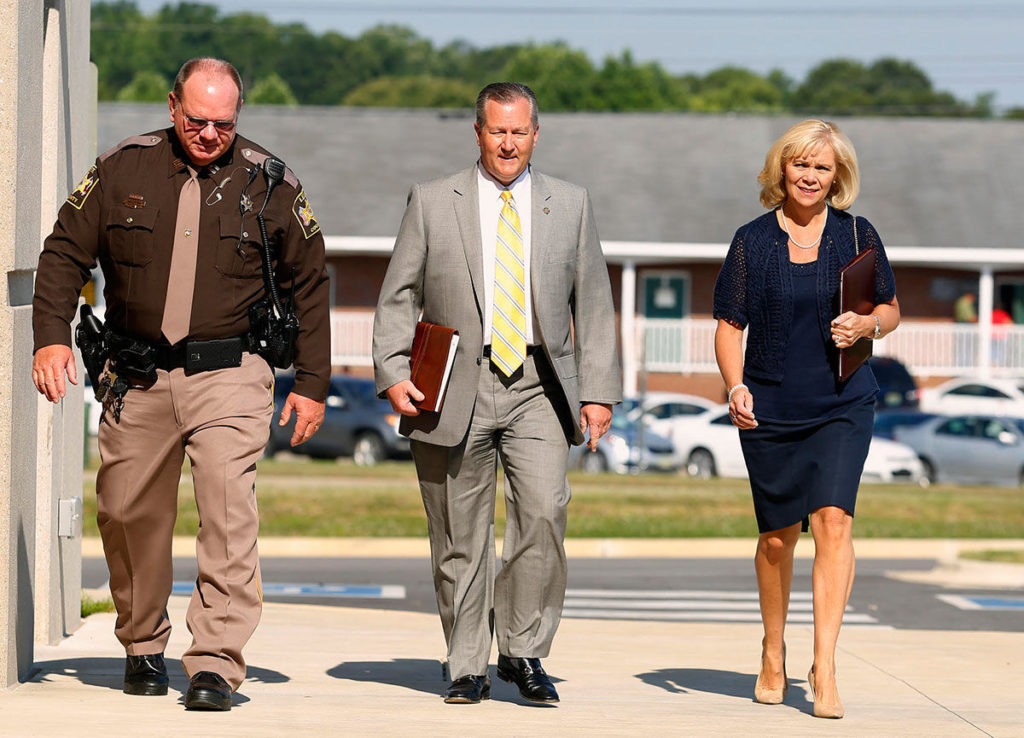
In the long-awaited trial of indicted Alabama House Speaker Mike Hubbard, more than 20 witnesses were called during the first four days of trial last week. Fellow legislators, business partners, politicians and state executives testified about their knowledge of Hubbard’s actions, providing testimony for many of the 23 charges Hubbard faces. The state endeavors to prove Hubbard used his office for personal gain and used his position as Speaker of the House, and formerly as chair of the Alabama Republican Party, to solicit jobs and investments in businesses with which he was involved. A conviction on any one of the charges would remove the speaker from office. The charges carry potential sentences of two to 20 years and fines of up to $30,000 for each count. The trial resumed Tuesday after the long Memorial Day weekend as prosecutors called Jon Sanderson, a financial officer for investment firm Sterne Agee from 2012 until March 2016. Sanderson testified to writing a check in November 2012 to Hubbard’s company Craftmaster on behalf of the Sterne Agee Group for $150,000, explaining he was instructed by CEO Jim Holbrook to write the check during a meeting. “During the meeting, Mr. Holbrook slid a piece of paper over to me that had Craftmaster Inc. written on it and he whispered to me that he needed a check written for $150,000 right then,” Sanderson explained. Sanderson said the incident was “not totally out of the ordinary.” Later in the morning, former Ethics Commission Director Jim Sumner was an expert witness on the ethics law. Sumner testified that Hubbard did not notify or seek advice from the Alabama Ethics Commission regarding consulting contracts he held with the American Pharmacy Cooperative Inc., Edgenuity and Capitol Cups. “I did not know about those companies until I saw the indictment,” Sumner said of Hubbard’s contracts with Edgenuity and Capitol Cups. Next, executive vice president of the online learning company, Edgenuity, Michael Humphrey, testified part of the reason his company hired Hubbard as a consultant was due to his position as a lawmaker. “I would say part of the reason was that he’s a legislator,” said Humphrey. “He was a legislator with the ability to work outside Alabama. I wanted to take advantage of his relationships.” Humphrey clarified the company never intended to use Hubbard’s consulting services within the state of Alabama. The trial continues Wednesday. Witnesses expected on Wednesday: Billy Canary: Business Council of Alabama president and CEO Dax Swatek: lobbyist Bob Riley: former governor of Alabama Minda Riley Campbell: daughter of former Gov. Bob Riley Robert Bentley: Governor of Alabama Greg Canfield: Department of Commerce secretary
Retired Alabama ethics chief: Mike Hubbard often got ‘the drill’
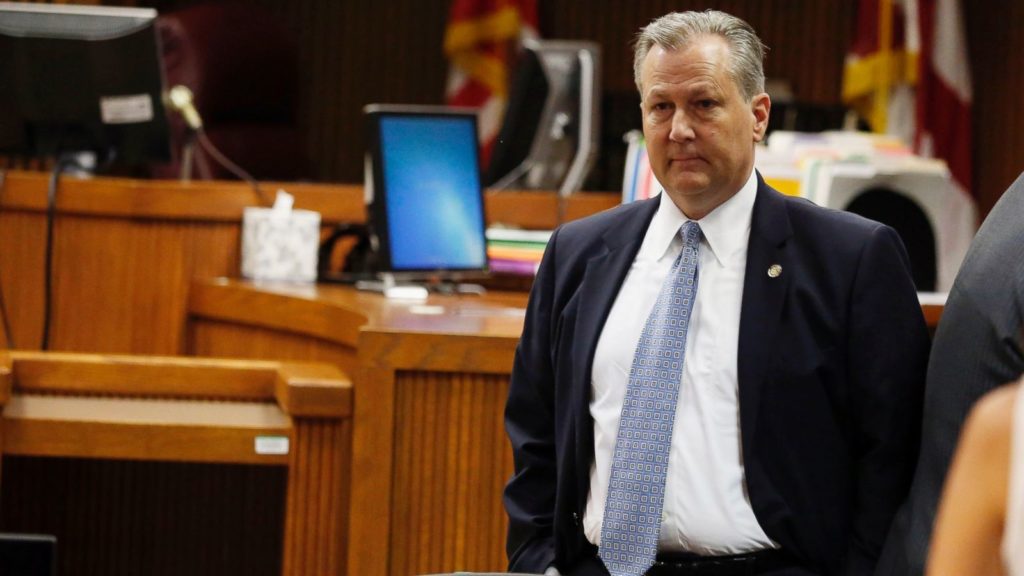
The retired director of the Alabama Ethics Commission testified Tuesday that he often gave “the drill” to House Speaker Mike Hubbard, cautioning him about actions that would violate the state’s ethics law. Prosecutors called Jim Sumner to give jurors a tutorial on the law and to try to show that Hubbard willfully ignored his advice. Sumner said Hubbard often sought informal ethics advice from him or general counsel Hugh Evans. He testified that they generally told Hubbard his consulting contracts would be legal as long as he didn’t use the “mantle of his office” to benefit his clients and businesses. “We always got to the point: I would say, or Hugh would say, ‘You remember the drill. You can’t use your position to benefit yourself, your business or your family,’” Sumner said. Hubbard’s defense has made a point of saying that he sought ethical guidance and followed the law. But informal opinions don’t provide the legal protection Hubbard might have received had he sought formal opinions from the five-member Ethics Commission. And unlike his private conversations with Sumner and Evans, commission opinions are a matter of public record. Hubbard is charged with 23 felony counts of violating the ethics law by using his positions as speaker and state GOP chairman to solicit a total of $2.3 million in work, investments and financial favors. Hubbard has maintained his innocence and said the transactions were within the law’s exemptions for normal business dealings and longstanding friendships. Sumner said the law forbids public officials from: – using their offices to benefit businesses with which they are associated; – soliciting things with monetary value from lobbyists or their employers; – and being paid to lobby. Hubbard is accused of doing all three. Sumner said there is an exemption for longstanding friendships, so that people who had “known each other all their lives” could do things like go on vacation together without violating the law. Hubbard is expected to argue that the friendship exemption applies to his deals with former Gov. Bob Riley, now a lobbyist. Hubbard named his younger son Riley, and has described the former governor as his political mentor. A number of powerful corporation owners and executives were called to testify Tuesday about $150,000 investments they each made in Hubbard’s printing company, Craftmaster. Jon Sanderson, the former chief financial officer at Sterne Agee Group, Inc., testified that his CEO whispered during a meeting that he needed a $150,000 check made out to Craftmaster “right now.” Hubbard isn’t the only Alabama Republican in trouble. Alabama Gov. Robert Bentley faces impeachment after a scandal over his relationship with an aide, and Alabama Supreme Court Chief Justice Roy Moore is suspended and could be removed from office for allegedly violating judicial ethics in the fight over same-sex marriage. Republished with permission of The Associated Press
Testimony set to resume Tuesday in Mike Hubbard ethics trial
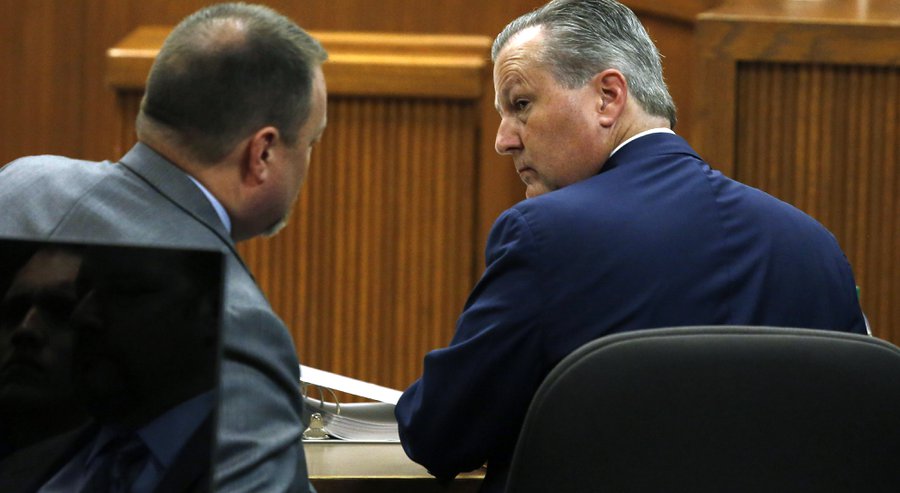
Testimony is set to resume in the ethics trial of Alabama House Speaker Mike Hubbard after the long holiday weekend. Prosecutors have indicated that on Tuesday they will call a number of influential lobbyists and company owners as witnesses. Prosecutors say Hubbard asked them to either make investments in his printing company or to help him find business clients. Hubbard is accused of using his position as GOP chairman and House speaker to generate $2.3 million in work and investments for his companies. Defense lawyers argue the transactions were legal and involved legitimate work. Business Council of Alabama President Billy Canary, the daughter of former Gov. Bob Riley and others are expected to testify. The trial is expected to last three weeks Republished with permission of The Associated Press
Mike Hubbard trial day 3: House colleague says Hubbard’s vote ‘probably’ a conflict of interest

It was a busy day on the witness stand Thursday in the case of State vs Michael G. Hubbard as eight witnesses were called to testify. The first witness of the day was Randy Kammerdiener, one of the owners of Majority Strategies, a political consulting firm the Alabama GOP had used for political advertising in 2010. Mike Hubbard is accused of using his previous position, which he held in 2010, as chair of the Alabama GOP to bring money to his company Craftmaster Printers through Majority Strategies. The prosecution asserts Craftmaster received upward of $700,000 from the deals Hubbard made as GOP chair with Majority Strategies. Kammerdiener testified he worked with the Alabama GOP, specifically Hubbard, in 2010. On the stand, Kammerdiener read a damning email he had sent to his business partner, Brett Buerck, saying if they wanted to do business with the Alabama GOP they had to use Craftmaster Printers to print their materials. He also read from a 2010 email he had sent to Alabama GOP political director Michael Joffrion. “Per Mike, we’re printing at Craftmaster and just passing the actual charges on to you all,” Kammerdiener read. During the cross-examination, he explained he “never had a specific conversation with Mike Hubbard saying I had to use Craftmaster.” The second witness of the day was Alabama House Ways and Means Chair, Ozark-Republican Rep. Steve Clouse, who was questioned regarding his knowledge of the legislative language Hubbard is accused of attempting to insert into the 2014 General Fund budget that would have essentially made the American Pharmacy Cooperative Inc. (ACPI) — a client Hubbard consults with the Auburn Network — the only agency with the ability to bid on a pharmacy benefit manager related to Medicaid, and then voting for that budget. Clouse testified the vote was “probably” a conflict of interest, explaining he did not know Hubbard was on the payroll of APCI when the pro-APCI language was added to the budget. Norris Green, director of the Legislative Fiscal Office, was third on the stand. He testified that he too was unaware of Hubbard’s contract with ACPI. Testimony was also heard from Legislative Fiscal Office officials Mary Lawrence and Rachel Riddle, who both testified they attended a meeting about the controversial APCI language. The final three witnesses of the day — Medicaid Commissioner Stephanie Azar, Clinical Services Director Kelli Littlejohn Newman and former state Health Officer Don Williamson — all testified on the state Medicaid Agency’s reaction when they discovered the pro-ACPI language was added to the budget. During the cross-examination, Hubbard’s defense lawyer Bill Baxley tried to suggest a former lawmaker, who has already pleaded guilty to an ethics violation, was responsible for the questionable language. Williamson testified that he was “surprised” when he learned Hubbard had a consulting contract with ACPI, the only company that would qualify for the work under the added budget language. Williamson said Hubbard agreed to remove the language once Medicaid officials raised concerns. Testimony will continue Friday, where the state says they have nine witnesses planned.
Consultant: ‘No choice’ but to subcontract to Mike Hubbard

A Florida political consultant testified Thursday that he believed he had no choice but to subcontract Alabama Republican Party campaign printing work back to a firm owned by the party’s chair. The chair at the time was Alabama House Speaker Mike Hubbard, now on trial for ethics violations. On Thursday, jurors heard that about party campaign work that was sent to Hubbard’s company, and conflicting evidence about Hubbard’s role in that. Prosecutors have accused Hubbard of using his political positions as speaker and Republican Party chair to make money and solicit favors such as investments from lobbyists. Defense lawyers argue that the transactions were above board. Randy Kammerdiner, co-owner of Majority Strategies, designed glossy direct mail pieces for the Republicans’ 2010 campaign to take over the Alabama Legislature. He testified that he believed party officials wanted the fliers printed at Craftmaster, where Hubbard was a co-owner. Prosecutor Matt Hart asked Kammerdiner if he felt he had any other option but Craftmaster for the printing work. “No,” Kammerdiner replied. Prosecutors also showed jurors a 2010 email from Kammerdiner to a state party employee, which said: “Per Mike, we’re printing at Craftmaster and just passing the actual charges on to you all.” However, under cross-examination by defense lawyer Lance Bell, Kammerdiner said Hubbard never directed him to use his firm. “I never had a specific conversation with Mike Hubbard saying I had to use Craftmaster.” Kammerdiner said. The political consultant also testified that the firm had previously used Craftmaster before Hubbard became party chair and the party was probably getting a “better deal” because they avoided the normal markup Majority Strategies applies to printing costs. Republished with permission of The Associated Press.
Feds question Spencer Collier in Robert Bentley scandal
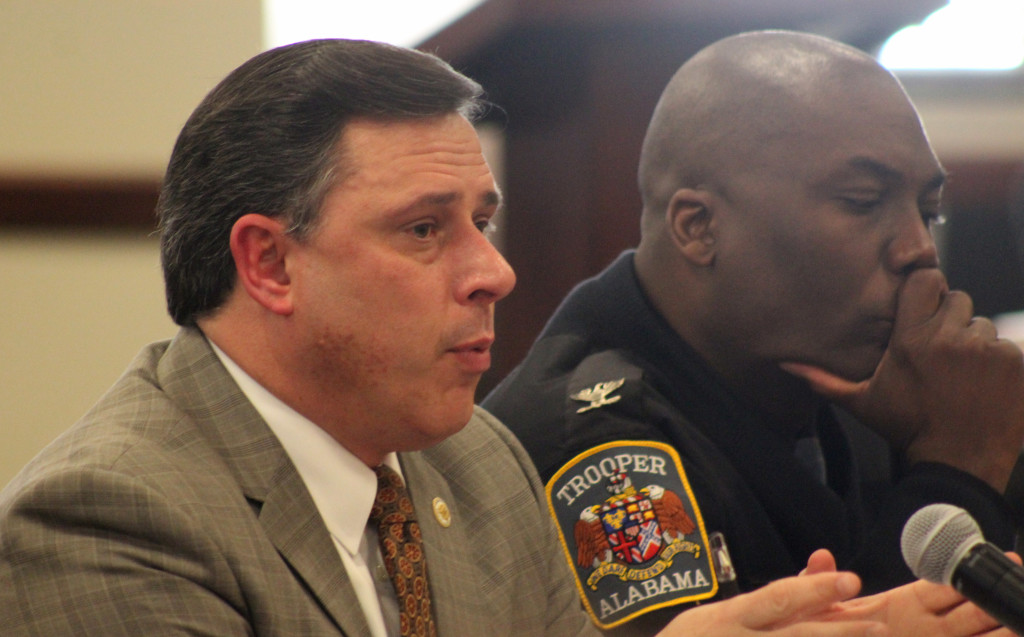
The former law enforcement chief who accused Alabama Gov. Robert Bentley of having an affair with an adviser has been questioned by federal investigators about the governor’s administration, the official’s attorney said Wednesday. Kenny Mendelsohn, who represents former state law enforcement secretary Spencer Collier, would not elaborate on what questions investigators asked. A person close to the administration who also was questioned told The Associated Press FBI agents asked about the use of state grants and other resources. The person spoke on condition of anonymity, fearing retribution. The revelations are the latest sign of trouble for Bentley, who has been the subject of an impeachment push since he admitted making inappropriate comments to the former aide, Rebekah Caldwell Mason. He has denied having an affair with her. A spokeswoman for the governor declined to comment. The AP obtained a letter written by an aide to U.S. Attorney George Beck in Montgomery saying Beck has stepped aside from any possible investigation or prosecution involving the governor’s office. The subject line on the letter, dated last week, states: “Re: Grand Jury Investigation.” However, it is not clear if a grand jury has been empaneled, which could be a sign of a deepening investigation. Beck said Justice Department officials in Washington decided to remove the case from his office, and he is unsure of its status since then. “The office of general counsel makes those decisions when they think it’s in the best interest of the public that if a U.S. attorney’s office is too close to a situation then it’s best to recuse that U.S. attorney us and the entire office,” he said. FBI Director James Comey, in Birmingham for an event about civil rights, declined comment on any federal probe involving Bentley. The impeachment effort began after Collier, the former head of the Alabama Law Enforcement Agency fired by Bentley, accused his former boss and friend of having an affair with a staffer and of interfering with law enforcement business. Bentley acknowledged making inappropriate remarks to Mason but denied the other accusations. However, audio recordings obtained by the AP purportedly captured the governor — before his wife of 50 years divorced him last year – telling a woman he loved her and enjoyed kissing and fondling her. Collier has since sued Bentley for wrongful termination, accusing Bentley of firing him because the two disagreed over a request to file an affidavit saying investigators found no evidence of misconduct by prosecutors in the ethics case against House Speaker Mike Hubbard, who is now on trial in Lee County. Collier said he wanted to file the affidavit, but the governor didn’t want him to. Collier said that Bentley asked him to lie to prosecutors, and that he was unwilling to do that. Bentley asked a judge to throw out the lawsuit earlier this week. — Associated Press writers Kim Chandler in Opelika, Alabama, and Phillip Lucas in Birmingham contributed to this report. Republished with the permission of The Associated Press
Mike Hubbard trial day 2: Hubbard’s businesses and consulting contracts

The ethics trial of embattled Alabama House Speaker Mike Hubbard continued Wednesday as his associates and employees, past and present, took the witness stand. Day two focused on Hubbard’s businesses and his consulting contracts with several companies, as the State tried to prove Hubbard used his previous position as chairman of the Alabama Republican Party to bring in money and business to his companies, Craftmaster Printers and Auburn Network. Up first was the president and co-owner of Craftmaster Printers, Barry Whatley, who bought the company along with Hubbard in 2000. “It’s been like raising the Titanic. It’s been a struggle since day one,” Whatley said of the company that was $8.8 million in debt at the time of initial purchase. The majority of Whatley’s testimony focused on Craftmasters’ relationship with a Florida-based political marketing company called Majority Strategies. Majority Strategies has used Craftmasters for printing and mailing for political campaigns, in a relationship Whatley likened to that of a “roller coaster.” Next to the stand was Chris Hines, the former senior vice president of Auburn Network. Hines testified that company documents listed Hubbard as the sole shareholder and an employee of the Auburn Network whose salary was listed at $132,000 in September of 2013. Under questioning from prosecutors, Hines testified he was aware that Mike Hubbard brought in a number of consulting contracts — with Southeast Alabama Gas District, Robert Abrams with CV Holdings, Edgenuity, and the American Pharmacy Cooperative Inc. — that each paid from $5,000 to $12,000 per month in consulting fees. Hines went on to explain he didn’t know exactly what Hubbard did for these companies, simply that he provided them with consulting services. Prosecutors introduced a check for $7,500 listed as being for “lobbying services from one the companies to the Auburn Network into evidence. Defense attorney Bill Baxley made clear during cross-examination all but one of the contracts were intentionally arranged so that no consulting work could be done in the state of Alabama, to avoid ethics violations. The third witness of day two was the clerk of the Alabama House of Representatives Jeff Woodard, whose testimony focused on a bill from the 2013 legislative session as Hubbard is accused of voting for SB 143 knowingly having a conflict of interest. Woodard testified that Hubbard voted yes for the bill in question, which included language that would give American Pharmacy Cooperative Inc. (APCI), one of the businesses the Auburn Network had a contract with, a monopoly on Medicaid prescriptions in the state. During cross-examination, Woodard testified the version of the budget, which ultimately became law, didn’t include all of the additional language that benefited Hubbard. Among the final two witnesses of the day was Josh Blades, Hubbard’s former chief of staff in 2013, who at many times got emotional on the stand. Blade testified during the 2013 legislative session he was involved in meetings and discussions about adding the APCI language to the general fund budget but did not know that Hubbard had a contract with the company until the day of the actual vote. According to Blades when he asked Hubbard about the contract, Hubbard explained it was only for work outside of the state. Blades went on to advise Hubbard to vote against the budget, but according to Blades, Hubbard said not voting would raise too many “red flags.” “We told him it was a problem, and we didn’t think he should move forward with the language in the budget because it looked bad,” said Blades. “I told Mr. Hubbard he should not vote on the budget.” “He said it would raise too many red flags if the speaker did not vote on his own budget,” Blades continued, explaining Hubbard’s intent was to fix it later by removing the language. “I was upset that I had played a role in what transpired that day, and that I had played a role unknowingly,” Blades said on the stand, adding that he was “afraid that there might be legal implications after all this transpired.” The language was later removed from the legislation. The fifth and final witness of the day was another former 2013 employee in the speaker’s office, Jason Isbell. Isbell, current vice president of legal and governmental affairs, in-house attorney and lobbyist for the Alabama Banker’s Association was chief counsel to Hubbard in 2013. Isbell’s testimony focused on the specific language added to the 2013 budget. He explained that despite drafting the ACPI language for the 2014 budget he did not know of Hubbard was consulting for APCI at the time. “I was an attorney in the speaker’s office; I wasn’t the speaker’s attorney,” Isbell said. If convicted, Hubbard faces a maximum penalty of two to 20 years imprisonment and fines of up to $30,000 for each count. He would be removed from office if convicted of any of the 23 charges. Witnesses expected on Thursday: Randy Kammerdiener: co-owner of Majority Strategies co-owner Don Williamson: former Alabama Medicaid Agency Director Mary Lawrence: legislative fiscal analyst of Health and Social Services Rachel Riddle: Legislative Fiscal Office, Senate Fiscal Officer, Deputy Director Norris Green: former Director of the Alabama Legislative Fiscal Office Steve Clouse: Alabama Representative, Chair of the House Ways and Means Committee
Mike Hubbard’s former chief of staff takes stand
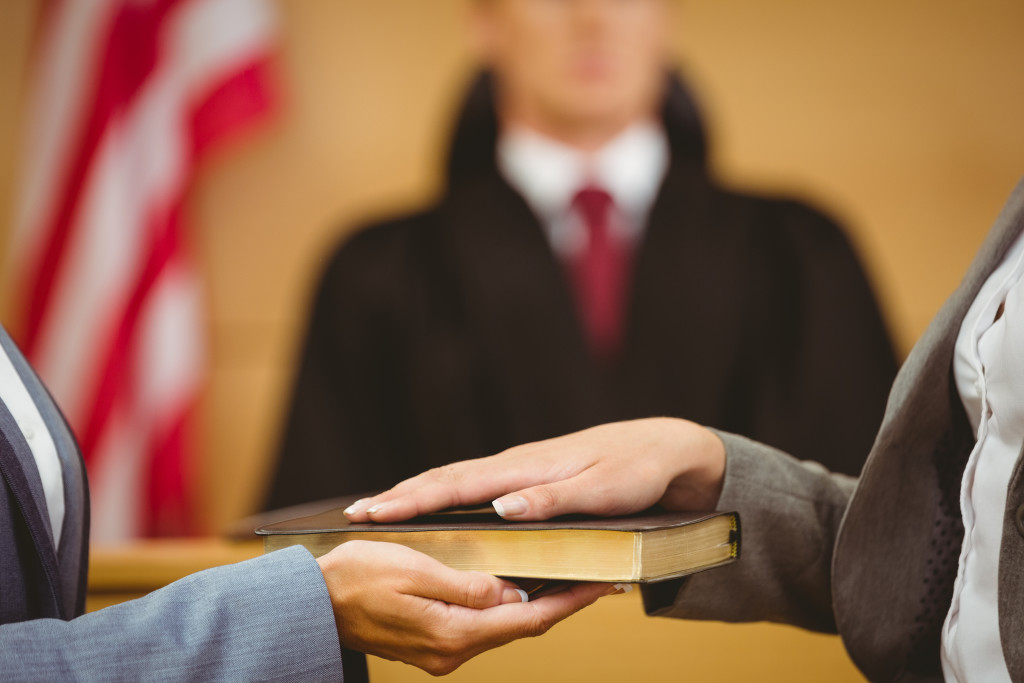
Alabama House Speaker Mike Hubbard‘s former chief of staff testified Wednesday that he became uncomfortable at times when Hubbard’s personal business dealings appeared to intersect with the official functions of his office. Josh Blades— who for four years served as Hubbard’s top aide — provided emotional testimony as a prosecution witness at Hubbard’s ethics trial. Blades described Hubbard as a “friend” and “good boss,” but his voice shook as he recalled times when he was upset and concerned about his former boss’s words and actions. Blades said he was uncomfortable when Hubbard told him he had “one hundred thousand reasons” to help a maker of drinking cups quickly get a patent approved. “I immediately thought the speaker meant money,” Blades testified. Hubbard had asked Blades to reach out to the patent office and a Mississippi congressman who sat on a patent oversight board. Blades said he only later learned that Hubbard had a consulting contract with the cup company. Hubbard faces felony ethics charges accusing him of using his political positions to obtain $2.3 million in work and investments. Hubbard earns about $54,000 as speaker. His defense argues that the transactions were proper, and that state ethics law exempts such things as normal business dealings and friendships. Blades said he was also worried about “legal implications” and an “appearance of impropriety” after later learning that an amendment they agreed to add to a 2013 budget bill could have benefited one of Hubbard’s clients. Blades said he attended a meeting with lobbyists about a possible budget amendment that would set requirements for any pharmacy benefit manager the state Medicaid office might use. Blades said he later learned that the only company to qualify for the work — the Alabama-based American Pharmacy Cooperative Inc. — was paying Hubbard through a consulting contract worth $5,000 a month. APCI works with 1,300 independently owned pharmacies in 23 states as a buying cooperative for medications. “I was upset because I played a role in what transpired,” Blades said. Blades said that when he asked Hubbard about it, the speaker acknowledged the contract but said he only worked on out-of-state matters for the group. Hubbard directed him to try to remove the language before the bill hit the House floor but it was too late, Blades testified. The former chief of staff also urged Hubbard not to vote on the budget bill because it “looked bad,” but Hubbard said it would send up “too many red flags.” The language was later stripped in committee. Under cross-examination from Bill Baxley, Blades acknowledged he and others thought the budget language was good public policy and that Hubbard wanted it removed when Blades suggested it was a problem. Jason Isbell, Hubbard’s former chief counsel, testified that he helped draft the Medicaid amendment but didn’t know about the speaker’s relationship with the cooperative. “You didn’t know he had an interest in APCI?” acting Attorney General W. Van Davis asked Isbell. Isbell said he didn’t know, adding that he was an attorney in the speaker’s office but not the speaker’s personal attorney. Business associates of Hubbard’s testified earlier Wednesday, describing one of his companies as deeply in debt while another earned tens of thousands of dollars each month through Hubbard’s consulting contracts. Barry Whatley, a partner with Hubbard in the Craftmaster printing company, said their business was struggling financially, and that he and Hubbard came up with a plan to ask several deep-pocketed individuals for investments of $150,000 each. “It’s almost like raising the Titanic,” Whatley said of the company’s finances. Chris Hines, a former vice president at Hubbard’s other company, the Auburn Network, said the radio broadcast and publishing firm received checks worth many thousands of dollars each month, and that he wasn’t sure what Hubbard did for the money. Republished with the permission of the Associated Press
Mike Hubbard trial Day 1: Opening statements & first witnesses

Nineteen months in the making, after a grand jury charged him with 23 felony ethics violations, Alabama House Speaker Mike Hubbard finally had his day in court on Tuesday. Whether he wanted it or not. The day began at 9 a.m. as the courtroom began to fill with reporters and interested observers. At 10 a.m. the jury was seated. Prosecutor Matt Hart has arrived in courtroom. Hubbard and defense team have stepped out. Not sure when this will start. #alpolitics — Mike Cason (@MikeCasonAL) May 24, 2016 Shortly after the Attorney General’s Special Prosecution Division Chief, Matt Hart, gave opening statements for the prosecution, where he gave a detailed lesson on how the Alabama state government works, what are ethics laws and why they exist, followed by a charge-by-charge explanation of charges against Hubbard. His opening took approximately one hour and 40 minutes. Deputy Attorney General Matt Hart opens the case against Speaker Mike Hubbard in court on Tuesday, May 24, 2016, in Opelika, Ala. Hart is facing Mike Hubbard, right, and attorney Lance Bell, left. [Photo Credit: Todd Van Emst] “Mr. Hubbard asked things he was not allowed to ask and took things he was not allowed to take,” Hart said in his opening arguments. Hubbard faces a 23-count indictment on felony ethics charges alleging he used his office for personal gain and used his position as Speaker of the House, and formerly as chair of the Alabama Republican Party, to solicit jobs and investments in businesses with which he was involved. Hart went on to explain that before the 2010 election, as the Party chairman, Hubbard directed Party business to a printing company he owned, Craftmaster, as well as a media company Hubbard founded, the Auburn Network. According to Hart’s opening statement, Hubbard directed Party officials to send $101,925 in business directly to Craftmaster and $41,835 to Auburn Network. “If you just saw a check going to Majority Strategies, you wouldn’t know,” Hart explained. Following Hart, former Attorney General Bill Baxley presented the opening statements for the Defense for roughly an hour and 15 minutes, where he called the charges against Hubbard “gobbledy-goop” and “mumbo jumbo.” Hubbard attorney Bill Baxley attacked the Speaker’s indictment as “unintelligible,” “mumbo-jumbo” and “gobbledygook.” (2) #alpolitics — Brian Lyman (@lyman_brian) May 24, 2016 Baxley claimed Hubbard went out of his way to make sure he followed ethics laws by actively seeking guidance from the Ethics Commission. “He tried to follow every part. He tried to get them to tell him to make sure he knew where the line was,” Baxley told the courtroom. After the opening remarks, jurors heard testimony from the first two witnesses in the case, John Ross and Tim Howe, both former state GOP officials who are now partners in the Montgomery-based lobbying firm of Swatek, Howe and Ross. Testimony resumes at 9 a.m. on Wednesday. Witnesses expected on Wednesday: Barry Whatley: president of Craftmaster Josh Blades: Hubbard’s former Chief of Staff Jason Isbell: Hubbard’s former legal adviser Jeff Woodard: clerk of the House Steve Clouse: Alabama representative, Chair of the House Ways and Means Committee
Update: Hubbard, state lawyers lay out opening statements in corruption case
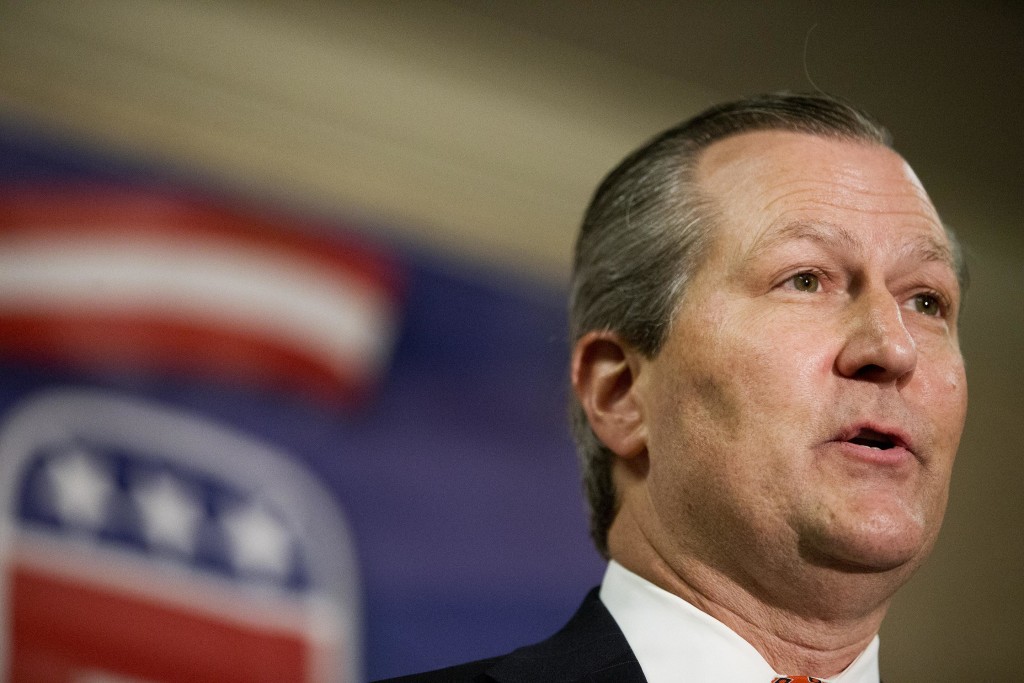
The Latest on the Alabama House speaker’s trial (all times local): 12:40 p.m. The defense is denying prosecutors’ claims that Alabama House Speaker Mike Hubbard wrongfully made more than $2.3 million from his powerful legislative position. Hubbard attorney Bill Baxley told jurors in opening statements Tuesday that Hubbard has done nothing wrong. Baxley says a 23-count felony indictment against Hubbard is “mumbo jumbo.” And he says Alabama’s ethics law contains exemptions that cover things like normal business dealings and friendships. The state claims Hubbard used his elected office and former position as state GOP chair to illegally receive contracts, investments and business totalling nearly $2.3 million. Hubbard’s trial comes at a tough time for Alabama Republicans. Gov. Robert Bentley faces possible impeachment over a sexually charged scandal. Supreme Court Chief Justice Roy Moore is suspended and faces possible removal for allegedly violating judicial ethics. — 11:25 am. Prosecutors are laying out their case against indicted Alabama House Speaker Mike Hubbard. In opening statements Tuesday, prosecutor Matt Hart told jurors that Hubbard took contracts worth tens of thousands of dollars each month from companies that wanted to influence legislation. Hart said Hubbard needed the money because he was losing a job with the company that broadcasts Auburn University sports, and his printing company was failing. Hubbard denies any wrongdoing. Defense lawyers will talk to jurors later Tuesday. Prosecutors say Hubbard used his office and past position as chair of the Alabama GOP to solicit business for himself and his companies. Republished with the permission of The Associated Press.
Alabama Speaker Mike Hubbard’s trial to begin Tuesday morning
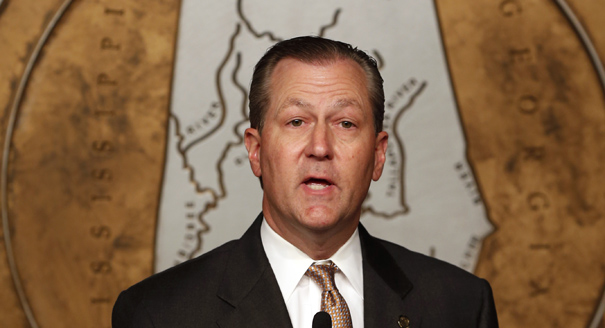
The speaker of Alabama’s House of Representatives is going to trial on felony charges that could result in his removal from office. A judge told jurors to be in court Tuesday morning to begin the trial of Speaker Mike Hubbard. Hubbard engineered the Republican Party’s takeover of the Alabama Statehouse in 2010. Now he’s charged with 23 felony ethics violations. Conviction on even one would result in his ouster. Prosecutors say Hubbard used both his office and past position as chairman of the Alabama GOP to solicit business for himself and his companies. Hubbard denies doing anything wrong. Hubbard’s trial comes as Alabama Gov. Robert Bentley faces possible impeachment over a sexually charged scandal. State Supreme Court Chief Justice Roy Moore also is suspended and faces possible removal for allegedly violating judicial ethics. Republished with permission of The Associated Press.


